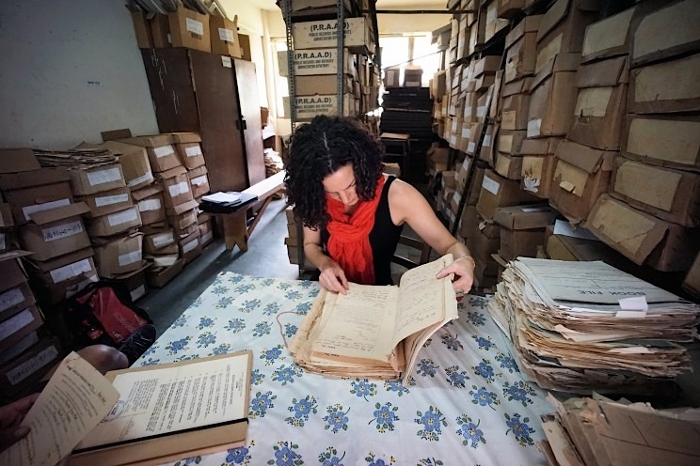Faculty Spotlight: Onnie Rogers
Northwestern University Institute For Policy Research
November 2016

IPR developmental psychologist Onnie Rogers examines how stereotypes affect youth identity. |
IPR developmental psychologist examines how children form their identities
As an undergraduate student at the University of California, Los Angeles, and as the only African-American gymnast on her college team, IPR developmental psychologist Onnie Rogers often found herself feeling like an “exception.”
“I remember reading studies in my undergraduate courses and thinking ‘I’m not supposed to be here,’” Rogers said. “My parents didn’t go to college, we’re an African-American family, working class …. All of the data said I really shouldn’t be in college.”
Rogers said she was troubled by this idea of being “special” somehow for making it, sparking questions about identity and self-perception. These questions have informed her research, which focuses on how cultural norms, expectations, and stereotypes affect how youth see themselves, particularly in terms of schooling and education.
Identity Development
The idea of self is central across the world and across the lifespan, with some even arguing that the “quest of life” is searching to figure out who we are, according to Rogers. But “we don’t live inside a little box and just decide independently who we’re going to be,” she pointed out. “Our identities are inherently shaped by the contexts in which we’re embedded, the historical moment, and societal beliefs, expectations, and stereotypes.”
So what do children understand about their identities? Rogers, along with Andrew Meltzoff of the University of Washington, interviewed 222 African-American, white, and mixed-race children at three racially diverse schools in Tacoma, Washington. The researchers asked the children to rate how important racial and gender identities were to them—either “not much,” “a little bit,” or “a lot.”
In the 2016 study published in Cultural Diversity and Ethnic Minority Psychology, children overall rated gender as a more important identity than race, but African-American and mixed-race children ranked race as more important than white children. Moreover, children who rated race as not important were more likely to define race by saying “everybody is the same.” But children who said race was important to them defined racial identity as a sense of pride and an awareness of group differences.
“In some ways, it suggests that white kids and kids of color are navigating very different racial worlds and they’re thinking about the racialized self in very different terms,” Rogers said…
Read the entire article here.





